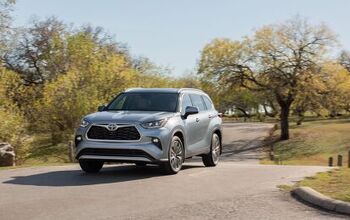Motor Vehicle Safety Act Passes First House Hurdle
Rep Henry Waxman’s version of the Motor Vehicle Safety Act passed the House Subcommittee on Commerce, Trade and Consumer Protection today, and will go before the full Committee On Energy And Congress. The subcommittee markup [in PDF format here] includes a number of provisions that the industry and others had argued against, such as a $9 fee on each new vehicle sale, and mandatory event data recorders (EDRs) which would “continuously record vehicle operational data” and store all data from 60 seconds before, and 15 seconds after a crash. According to Automotive News [sub], Rep John Dingell is in negotiations with committee chairman Waxman to mitigate two key proposals: the removal of a cap on NHTSA fines, and the granting of so-called “imminent hazard” authority.
On the other hand, the subcommittee website has a record of other amendments which failed to make the markup. One amendment, by Rep Ed Whitfield (R – KY) would have required that
event data recorders be configured to allow the owner of the vehicle to enable and disable the recording function without interfering with the safety functions of the vehicle
No such luck. Another Whitfield amendment would have sought to keep established privacy guarantees for “trade secrets and commercial information” in the course of government agency regulation, by removing clauses from the bill that would have voided these guarantees for:
(1) Production information regarding passenger motor vehicles, information on incidents involving death or injury, and numbers of property damage claims.
(2) Aggregated numbers of consumer complaints.
Another failed amendment would have given NHTSA up to five years to roll out new standards mandated by the act, instead of two. Another would have removed the $9 per new vehicle sale “vehicle safety user fee.”
More by Edward Niedermeyer
Latest Car Reviews
Read moreLatest Product Reviews
Read moreRecent Comments
- SCE to AUX All that lift makes for an easy rollover of your $70k truck.
- SCE to AUX My son cross-shopped the RAV4 and Model Y, then bought the Y. To their surprise, they hated the RAV4.
- SCE to AUX I'm already driving the cheap EV (19 Ioniq EV).$30k MSRP in late 2018, $23k after subsidy at lease (no tax hassle)$549/year insurance$40 in electricity to drive 1000 miles/month66k miles, no range lossAffordable 16" tiresVirtually no maintenance expensesHyundai (for example) has dramatically cut prices on their EVs, so you can get a 361-mile Ioniq 6 in the high 30s right now.But ask me if I'd go to the Subaru brand if one was affordable, and the answer is no.
- David Murilee Martin, These Toyota Vans were absolute garbage. As the labor even basic service cost 400% as much as servicing a VW Vanagon or American minivan. A skilled Toyota tech would take about 2.5 hours just to change the air cleaner. Also they also broke often, as they overheated and warped the engine and boiled the automatic transmission...
- Marcr My wife and I mostly work from home (or use public transit), the kid is grown, and we no longer do road trips of more than 150 miles or so. Our one car mostly gets used for local errands and the occasional airport pickup. The first non-Tesla, non-Mini, non-Fiat, non-Kia/Hyundai, non-GM (I do have my biases) small fun-to-drive hatchback EV with 200+ mile range, instrument display behind the wheel where it belongs and actual knobs for oft-used functions for under $35K will get our money. What we really want is a proper 21st century equivalent of the original Honda Civic. The Volvo EX30 is close and may end up being the compromise choice.


































Comments
Join the conversation
Tinfoil hat my ass! What do you think is going to happen when you're going 46 mph in a 45mph zone and a single mom with a minivan makes a left out of her driveway right in front of you? Now she's dead. But you say there was no possibility of avoiding the collision? You never applied the brakes dude! It's obviously your fault, and the box says you're guilty! I conjecture that the lawyers will have to figure it out, but suspect you'll be cited for cause due to your irresponsible behavior. Just try to convince the jury that 1 mph didn't make a difference. Maybe we can call some expert witnesses, depending on your financial resources. Maybe you'll manage to avoid the vehicular homicide charge, maybe not. So much for decreasing litigation, huh?
As I make my living as an auto insurance claim representative, I'll share my two cents on EDRs. They will be helpful during liability investigations but will be only a small part of the puzzle. For handling liability disputes, I need scene photos, both drivers' statements, witness statements if applicable, vehicle photos, and if possible a police report. As for bnolt's scenario, I would ask him when he first saw the minivan. When did you notice it first move? What was your reaction? I would ask the other driver the same thing. If you're confident in your story, that's helpful. If you're not, we're gonna talk about how you might sound in front of a jury. That's if liability is hard to prove and the evidence is shaky. EDR data might back up your story, it might not. Also, EDR data would be considered the property of the vehicle owner. If you don't share that data with your insurance company you may find yourself violating the cooperation clause and finding yourself without coverage for the accident. Maybe. If it's not absolutely necessary for investigating liability, I wouldn't hold it against you. EDR data is just another tool to help make investigating accidents better.